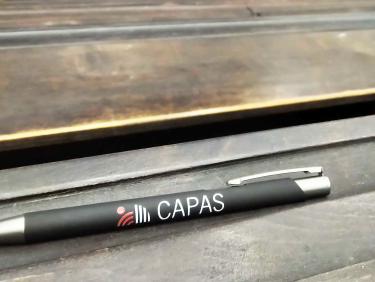RESEARCH
How do we imagine the end of the world? And what about the many worlds that have already ended? As human-caused climate change, growing political polarization, and pandemics continue to signal the collapse of existing systems, the concept of apocalypse is gaining renewed attention in both popular culture and academic discourse. Apocalyptic themes permeate artistic practices, media narratives, political debates, socio-economic analyses, and speculative thinking. At the same time, apocalyptic imaginaries give rise to emancipatory and creative potentials. They open up space for envisioning plural worlds, embodied futures, and non-linear temporalities—challenging dominant narratives and offering new ways of thinking about what comes next.

Since CAPAS’ initial conception in 2019, a key premise of the project has been confirmed: the apocalypse is gaining more and more significance—not only as concept, narrative, and fantasy but, above all, as an experience. This has been demonstrated by events such as the COVID-19 pandemic, extreme weather phenomena related to climate change, the renewed threat of nuclear war, growing awareness of the possibilities and dangers of artificial intelligence, far-right threats to (already fragile) democratic institutions, as well as the ways in which these events and developments have been framed in societal debates and portrayed in academic and cultural productions.
The broad international response to CAPAS highlights the unique conceptual and affective power of the terms “apocalypse” and "post-apocalypse" compared to semantically related concepts used to describe systemic threats and radical disruptions in the past, present, and future (such as crisis, collapse, or catastrophe). Apocalypse can function as both a fantasy and a scenario, but it can also refer to actual lived experiences and threats. It evokes images and narratives that provide meaning to otherwise incomprehensible events or expectations. These apocalyptic phenomena are observed and analyzed across numerous disciplines, leading to what can be described as an "apocalyptic turn"—a shift that challenges a form of catastrophism tied to practices of progress.
In its first funding phase (2021-2025), CAPAS contributed to the emergence of a research field that, while nascent in many disciplines, lacked an institutional or theoretical framework. This research field integrates diverse approaches and, instead of addressing related questions siloed in different disciplines—where overlaps and mutual enrichment might go unnoticed—fosters a transdisciplinary dialogue based on a shared research interest. The inherent interdisciplinarity of the research program is further expanded through perspectives from art and activism, enabling a transdisciplinary exploration of the field of Apocalyptic Studies.
The research carried out during the first four years generated case studies on apocalyptic movements, existential risks, and their associated responses and imaginaries. These investigations highlighted the fundamental historical dimension of the apocalypse—that is, the reality of past world-ending events and the continued influence of apocalyptic experiences and ways of thinking from the past in the present.
The initial establishment of Apocalyptic Studies as an independent research field was made possible primarily through methodological and conceptual advancements achieved through the collaboration of fellows and staff at CAPAS. In particular, by examining the apocalypse's spatial, temporal, and affective dimensions together, the research revealed an often-overlooked potential: the ability of apocalyptic narratives to shape society as a whole and serve as a guiding framework for world-making. These dimensions constitute the fundamental parameters of the research program for the second funding phase that started in March 2025.



